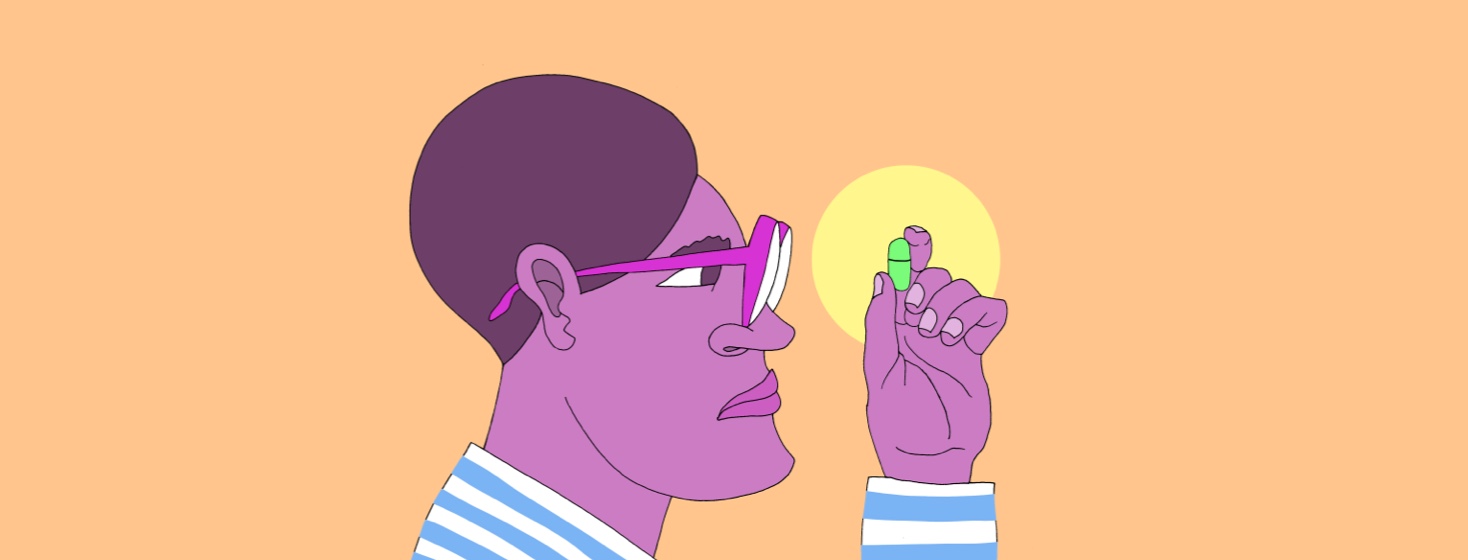When I Go Off My Meds...
As a person recovering from addiction, I was both aroused and suspicious when I was first prescribed an antidepressant. Aroused because the addict in me wondered if I would get high from it, suspicious because it would be a substance I would be ingesting to alter my state of mind – exactly what I had used drugs and alcohol for for years.
Luckily, I was prescribed generic Prozac (fluoxetine), one of the most widely proscribed SSRIs which, in my experience, has had no discernible side effect.
SSRIs for depression
SSRI stands of selective serotonin reuptake inhibitor. This is a class of drugs which "treat depression by increasing levels of serotonin in the brain. Serotonin is one of the chemical messengers (neurotransmitters) that carry signals between brain nerve cells (neurons)."1
Serotonin is a chemical your body produces (mostly in your gut) which influences your mood as well as your sleep patterns, hunger, and sexual behavior. SSRIs increase the level of serotonin your brain absorbs, potentially shifting how you're feeling about things.2
In my experience, fluoxetine is not a "happy pill." My experience has been one of a gradual diminishing of negative feelings and behaviors.
This or That
When making treatment decisions, what do you do first?
What my depression symptoms look like
My depression manifests itself in near-crippling morning blues, a lack of enjoyment of things which have brought me happiness before, quick irritation and impulsive decision-making, and an overall affect I call "stone face," in which I lose my ability to express, well, anything.
In fact, when in a depressive episode anything that does make me feel something is nearly unbearable, and I avoid music that used to delight and move me. What fluoxetine does for me is slowly take away those symptoms, and I am left with a version of myself that feels authentic, with access to all my feelings, and the return of enjoyment, connection, and purpose.
Why, then, have I decided to stop taking it from time to time?
Going off my antidepressants
The first time was pure curiosity. I wanted to see if I noticed anything. The second time I was enrolled in a kind of self-help program which suggested going off any medications which alter your mood. (In retrospect, I came to see I had misunderstood this suggestion, which made it clear that participants should stay on prescribed medication when going off of them would be dangerous.)
And last year, in the midst of a profound upheaval in my life, I decided I wanted to "really feel my feelings." Careful what you wish for. In each case, I experienced the return of the depressive symptoms I described before.
This or That
Are you happy with your current depression treatment?
Who am I?
Beneath these decisions to go off my meds lies something deeper: Who am I? Am I the person who can't get out of bed in the morning and feels hopeless about my life? Or am I the person who functions with more lightness and joy, with the aid of some medicine I take? More specifically, is that more joyful person "fake" in some way?
I have years of experience creating fake personas. The drug and alcohol-fueled version of me you might encounter at a party or a club was a performance of someone I thought I wanted and needed to be to get you to like me. And I am an actor. My creative life is the exploration of myself and others within fictional circumstances.
All of the "versions" of myself
The key word to me in this exploration is "version." All of these personas – on drugs (prescribed or not), on stage, in bed, dancing to music - are versions of an ineffable and endless me. What I know now is that the decision about which version I want to be is up to me.
They are all true. They are all real. But thanks to medicine, the loving counsel of others, and the transformative spiritual experience of recovery groups I get to choose who to be. When any of those things are missing - medicine, counsel, groups - my ability to choose who I want to be is diminished. And when I am in the throes of depression, it nearly vanishes.
Depression and medication are different for everyone
Let me end by acknowledging that everyone has a different experience of the many antidepressant medications out there.
Just because this one works for me doesn't mean it will work for you. Many people work with their doctors in a kind of trial-and-error period, trying one thing then ditching it when it isn't working, and moving on to something else. And some people don't use medication at all, and find their way out of their depression by other means.
If you are suffering from depression, my hope is that you find the treatment that works for you, so that you can be the version of yourself you want to be.
